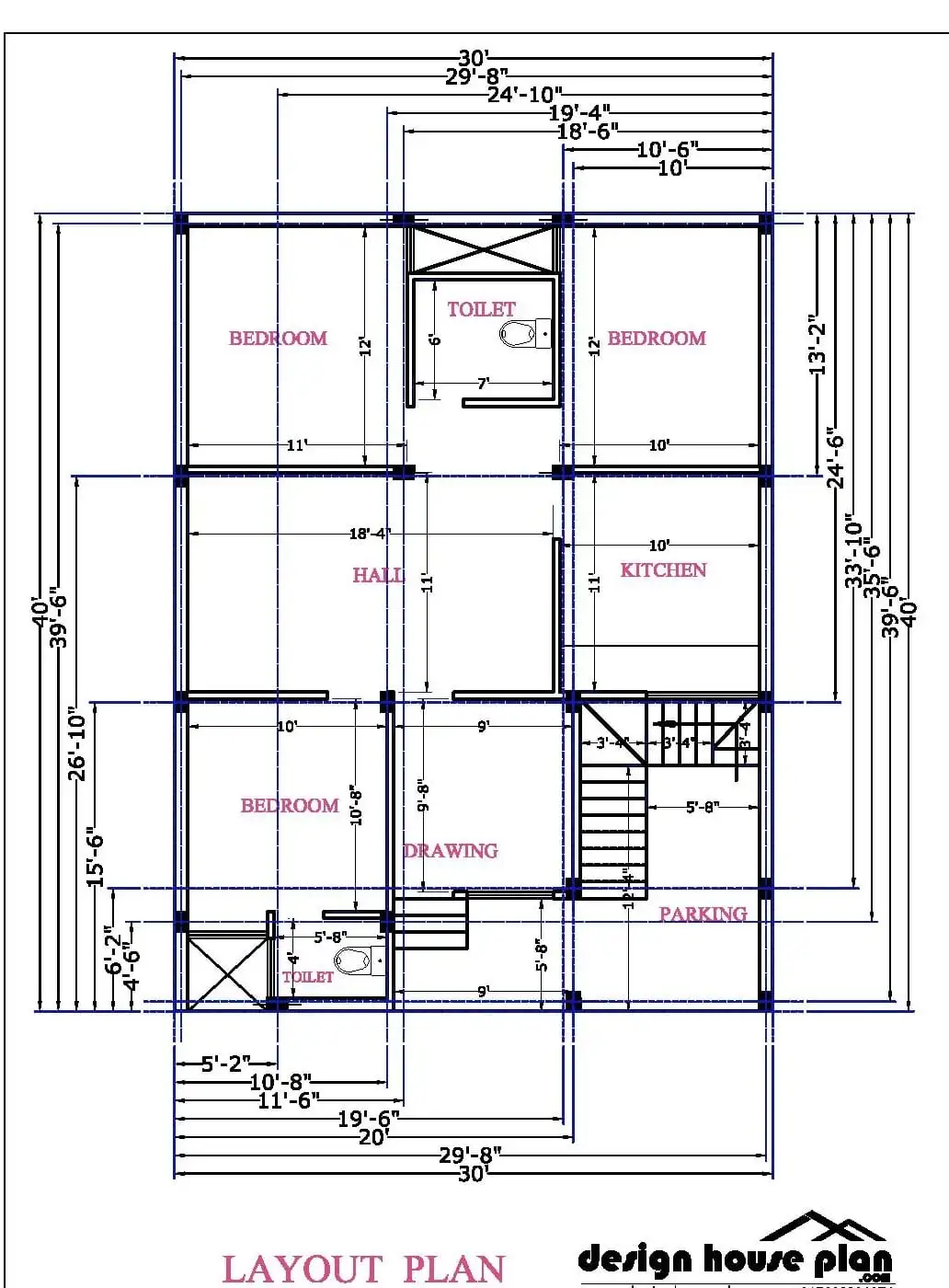Ever wondered how much it costs to finish a 1200 square foot dream home? Well, get ready to uncover the ins and outs of the material expenses involved. From the ground up, we’ll break down all the costs, big and small, to help you make informed decisions and plan for your home-building journey. Whether you’re a seasoned pro or a first-timer, this guide will equip you with the knowledge to turn your dream home into a reality. So, buckle up and let’s dive into the fascinating world of home finishing costs!
Material Cost to Finish a 1200 Sq Ft House
So, you’re thinking about building a 1200 square foot home and wondering about the cost of materials? That’s a common question! Building a 1200 sq ft house in the US typically costs between $190,000 and $420,000, with an average cost of $295,000 for mid-range quality construction. Let’s break down the numbers and see what influences these costs.
Budgeting for the Basics
When it comes to just the raw materials—think bricks, concrete ingredients, steel, and the like—you’re looking at roughly $70 to $120 per square foot. That means for a 1200 square foot space, your material costs could land anywhere between $84,000 and $144,000. Keep in mind, these are just ballpark figures.
Why Do Prices Vary So Much?
Just like everything else, the cost of building materials can fluctuate. Local market conditions play a big role—think supply and demand. Where you live geographically and even the specific regulations in your area can also influence pricing. And of course, the quality and type of materials you choose will impact the final cost.
Material Costs vs. Total Project Costs
While materials make up a big chunk of your building expenses, don’t forget about labor! The cost of hiring skilled professionals to actually build your home will also be a significant factor. Typically, labor gobbles up about 25-50% of your total construction budget. In the case of your 1200 sq ft house, that could mean shelling out anywhere from $43,750 to a hefty $105,000. Other things that influence your overall budget include:
- Location, Location, Location: Just like real estate prices, construction costs can vary depending on where you’re building.
- Upscale or Down-to-Earth? Choosing high-end finishes and intricate designs will naturally increase your expenses.
- Labor Rates: The going rate for skilled labor can differ based on your region and the demand for contractors.
- Land Acquisition: The cost of the land itself is a significant upfront expense.
- Permit Fees: Building permits and inspections required by local authorities add to the overall cost.
Smart Ways to Save
Building a home is a major investment, so it’s wise to explore ways to manage costs:
- Energy Efficiency is Key: Opting for energy-efficient materials might cost a bit more upfront, but they can save you money on utility bills down the line.
- Simplicity is Elegance: Sometimes, a simpler design can be just as beautiful and far more budget-friendly.
- Don’t Forget the Extras: Appliances, light fixtures, landscaping—these finishing touches add up, so factor them into your budget from the start.
- Know the Rules: Local building codes can dictate what materials are acceptable, so make sure you understand the requirements early on.
- Consider Alternatives: Explore cost-effective options like pre-fabricated or modular homes, which can offer significant savings compared to traditional construction methods.
The Bigger Picture
As you make decisions, consider the long-term value. While a larger or more luxurious home might seem appealing, weigh those desires against the additional cost. It’s all about finding the right balance for your needs and budget.
How Much Does it Cost to Finish a 1200 Sq Ft House – A Detailed Breakdown
Alright, so you’re figuring out the cost of finishing a 1200 sq ft house. Let’s dive into the nitty-gritty and break down the expenses you can expect.
Getting a Grip on Material Costs
First up, you’ve got your materials – think lumber, drywall, flooring, the works. Now, prices for these things can be all over the map depending on the quality you’re after, how much folks are charging for labor in your area, and even just the local market. But generally speaking, you’re looking at roughly $70 to $120 per square foot for a 1200 sq ft space. Do the math, and that means your total material cost could be anywhere from $84,000 to $144,000.
Factoring in the Cost of Helping Hands
Next, let’s talk about labor – the folks who’ll actually be building your dream home. Their rates depend on a few things: how complicated your house design is, whether finding skilled workers in your area is easy or tough, and of course, the overall size of your project. Typically, labor consumes about 25-50% of your total construction budget.
Construction Cost Per Square Foot: What to Expect
Now, when someone throws around “construction cost per square foot,” they’re talking about a figure that can fluctuate like crazy. It all comes down to those same factors we talked about – materials, finishes, and your local market’s mood swings. On average, though, expect to pay somewhere between $95 to $225 per square foot for a 1200 sq ft house.
Don’t Forget the Extras!
Hold on – we’re not done yet! We’ve covered materials and labor, but there are a few other expenses lurking in the shadows. These are the often-forgotten costs like buying the land in the first place, permit fees (because paperwork loves money), and hooking up your utilities. The bad news? These costs are about as predictable as the weather, varying wildly depending on where you’re building and the scale of your project.
Smart Ways to Keep Those Costs Down
Building a house can feel like a money pit, but don’t despair! There are clever ways to trim those expenses. One trick is opting for energy-efficient materials and appliances – think of it as an investment that’ll save you money on those pesky utility bills down the line. Another pro tip? Keep your house design simple and sweet. Remember, the more complex your vision, the more it’ll cost to bring it to life.
Factors Influencing Material Costs for a 1200 Sq Ft House
Okay, so you’re thinking about building a 1200 square foot house? That’s awesome! But before you dive in, let’s talk about the elephant in the room – the cost of materials.
Think of it like this: building a house is like putting together a giant puzzle, and each piece has a price tag. On average, you’re looking at spending somewhere between $70 to $120 per square foot just on materials. That means your total material cost could be anywhere from $84,000 to $144,000. Now, don’t let that scare you off just yet! These numbers are just a starting point, and a bunch of things can make them go up or down.
Let’s break down some of the big players:
- Location, Location, Location: Where you’re building plays a huge role. Land prices and even the cost of getting materials to your site can change drastically depending on if you’re in a bustling city or a quiet suburb.
- Fancy or Functional?: Dreaming of a grand staircase and intricate details? Those custom touches add up fast, both in materials and the skilled labor to make them happen! A simpler design can save you a pretty penny.
- What’s it Made Of?: This is a biggie! From sturdy brick to sleek metal siding, your choices impact both the look and the cost. Keep in mind that sometimes, spending a bit more upfront on durable materials can save you on repairs down the line.
- The Labor of Love (and Skill): Let’s not forget the folks who’ll be bringing your vision to life! Labor costs can vary based on where you live and the experience level of the builders in your area.
Here are a few insider tips to keep those costs in check:
- Go Green, Save Green: Investing in things like energy-efficient appliances and top-notch insulation might cost a bit more upfront, but they can save you big time on those monthly energy bills. Plus, it’s good for the planet!
- Keep it Simple, Sweetheart: Remember those fancy designs we talked about? They look amazing, but they also come with a hefty price tag. Choosing a simpler layout can be easier on your wallet without sacrificing style.
- Expect the Unexpected: Let’s face it, life throws curveballs. It’s always smart to factor in a little extra padding in your budget for unexpected costs. You’ll thank yourself later.
- Know the Rules of the Game: Every area has building codes that dictate what materials you can use. Doing your homework beforehand ensures you won’t get hit with surprise expenses down the road.
- Think Long Term: When choosing materials, it’s tempting to go for the cheapest option. But sometimes, spending a bit more on quality materials that last longer can save you money on replacements in the long run.
Building a house is a journey, and like any adventure, it’s important to be prepared. By understanding the factors that influence material costs and following these savvy tips, you’ll be well on your way to building your dream home without breaking the bank.
Estimating Your 1200 Sq Ft House Finishing Costs- A Step-by-Step Guide
Key Takeaways:
- Material costs for a 1200 sq ft house can differ based on location, materials, labor, customization, and extra features.
- The average construction cost ranges from $120,000 to $240,000.
- Building a 1200 sq ft house offers more space and flexibility compared to smaller homes.
- Costs include materials, labor, permits, customization, and utilities.
Determining Material Costs
Alright, so you’re thinking about a 1200 square foot house. That’s awesome! Plenty of room to stretch out and make it your own. But before you get carried away with those daydreams of granite countertops and a walk-in shower, let’s talk about the elephant in the room: money.
The cost of materials can really throw a wrench in your plans if you’re not careful. Think of it like grocery shopping – you can get the fancy name-brand cereal, or you can go for the generic store brand that tastes just as good. Same goes for building materials!
Step 1: Location, Location, Location
Just like that beachfront property costs more than a cozy cabin in the woods, where you build your dream house plays a HUGE role in material costs. A bustling city with high demand? Expect to pay a premium. A more laid-back town? Prices might be easier on the wallet.
Step 2: Material World
Let’s be real, who doesn’t love a little luxury? But those top-of-the-line materials, while gorgeous, will cost you. Think imported Italian tile versus locally sourced options. Both are beautiful, but one will have your bank account singing a different tune.
Step 3: The Labor of Love (and Money)
Unless you’re planning on building your entire house solo (impressive!), you’re going to need some helping hands – and those hands come with a price tag. In areas where construction is booming, finding experienced contractors might mean paying a bit more for their expertise.
Exploring Material Choices
We’re talking bricks and mortar, folks – the backbone of your new home! Here’s where things can get really exciting (and potentially overwhelming).
Step 1: Foundation Findings
This is the base, the bedrock – literally! Concrete, cinder blocks, maybe even a basement – these decisions impact both your budget AND how your house stands up to the elements.
Step 2: Framing Frenzy
Wood or steel? That’s the question! Wood is often more affordable, while steel can be sturdier in certain climates. Think about what makes sense for your region and your needs.
Step 3: Roofing Revelations
Asphalt shingles are the budget-friendly classic, while metal roofs last longer but cost more upfront. And then there’s tile…beautiful, durable, and often the priciest option.
Labor Costs and Availability
Time to talk about the people who will be making your dream home a reality!
Step 1: Finding Your Crew
General contractors, electricians, plumbers… it’s like assembling a team of superheroes, except these superheroes use hammers and wrenches. Get recommendations, read reviews, and don’t be afraid to ask around!
Step 2: The Price is Right (Or Is It?)
Labor costs vary from place to place. It’s a good idea to get multiple quotes from different contractors. This way you can compare not just prices, but also their communication style and how comfortable you feel working with them.
Save Smart: Tips for Controlling Costs
Building a house is a big investment, but it doesn’t have to break the bank!
Step 1: Energy Efficiency is Your Friend
Think long term! Investing in things like energy-efficient windows and appliances might cost a bit more upfront, but they can save you money on those monthly bills down the road.
Step 2: Keep it Simple, Sweetheart
Remember that elaborate, castle-like design you fell in love with? Yeah, that one will cost you. Sticking to a simpler design can save on labor and materials without compromising your style.
Step 3: Factor in the Extras
Permits, inspections, those unexpected hiccups that always seem to pop up… It’s better to overestimate your budget by 10-20% to cover these “just in case” scenarios, rather than be caught off guard later.
- Gray Kitchen Backsplash Tile: Ideas for a Stylish Upgrade - December 14, 2025
- Backsplash For Gray Cabinets: Choosing the Right Backsplash Style - December 13, 2025
- Gray And White Backsplash: Ideas For Timeless Style - December 12, 2025









